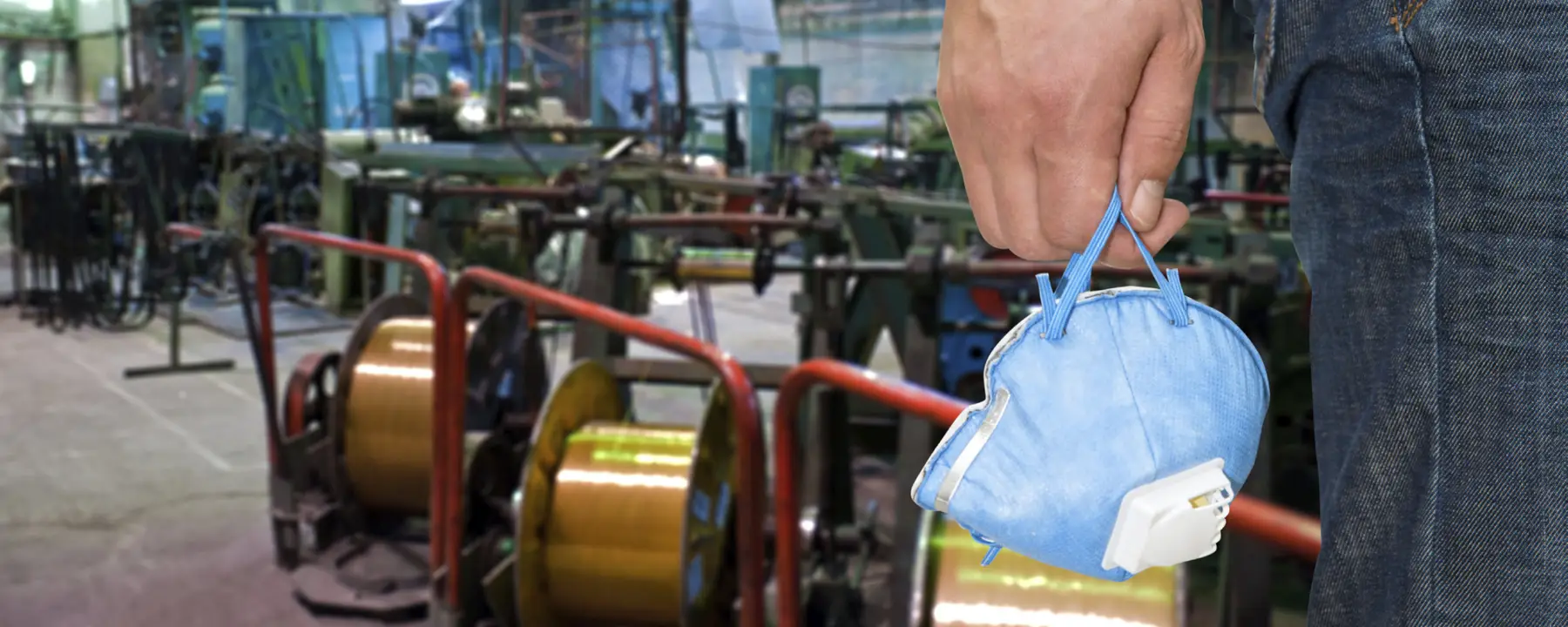Helping Safeguard Industrial Workers against Exposure to Beryllium through Proficiency Testing
Beryllium is a widely used material that is stronger than steel but lighter than aluminum. It is an essential material to the aerospace, telecommunications, defense, computer, medical, and nuclear industries. Exposure to beryllium, even in trace amounts, can cause chronic lung problems in those who are sensitized to it or even lung cancer.
Testing for trace particles of beryllium is difficult and the beryllium compounds historically used in proficiency testing are not always the beryllium compounds affecting industrial workers.
The U.S. Department of Labor’s Occupational Safety and Health Administration estimates that 35,000 workers in general industry are exposed to beryllium each year. While the greatest opportunities for exposure occur inside the workplace, family members of workers are also susceptible to exposure. Beryllium fumes and dust cause inflammation in humans in both occupational and non-occupational settings. The resulting condition, chronic beryllium disease, affects the lungs, lymphatic system, and skin. It is treatable but incurable.
As increasingly stringent regulations and safety protocols have greatly decreased incidents of acute beryllium exposure, the need for ultrasensitive analytical techniques to monitor chronic low-level exposure has become greater. Testing for these particulates is not easy, and involves difficult standards of sample preparation and analysis.
Applying Expertise in Proficiency Testing and Trace Metals Analysis
Proven performance is the best indicator of future success and we have a world of expertise when it comes to trace metals analysis.
Our scientists have a proven record of excellence in proficiency testing, with over 30 years of experience and almost three decades of support for AIHA Proficiency Analytical Testing (PAT) Programs, including several years supporting the Beryllium Proficiency Analytical Testing (BePAT) Program. BePAT is the only program in the United States specifically pointed to by the US Department of Energy in accordance with its Chronic Beryllium Disease Prevention Program regulation.
Furthermore, the BePAT Program highlights one of many intersections of our areas of expertise—our understanding of industrial hygiene and occupational exposures, our trace metals analysis experience, and our experience in the design and administration of laboratory proficiency testing programs.
Good data yield good decisions. It is critical that analytical laboratories generate repeatable and comparable beryllium analysis data in order to accurately monitor exposures over time. Our scientists review and evaluate lab results to ensure accuracy and verify components and concentrations. Our reports act as a reference for the labs to ensure results are accurate.
Protecting Future Generations from Harmful Exposures through Continued Improvement in Beryllium Analysis
We fully support the AIHA PAT Programs’ charge to provide participants with opportunities to improve and refine the analytical skills of their staff, while testing new procedures or training analysts. As we continue to gather data from participating laboratories, we are collecting information about the analytical methods and sample preparation procedures that perform best. This, in turn, empowers qualified professionals to conduct better beryllium analyses.
It is important to remember that these proficiency tests not only ensure that laboratories are competent to determine the presence of beryllium particulates in industrial settings. In the long term, our work supports efforts to ensure that people who are exposed to beryllium do not bring the harmful trace metal home on their clothes, in their vehicles, or on their person. Thus, it is not only workers who are protected but their families and our environment as a whole.
Our commitment to proficiency testing extends beyond the laboratory—through procedures and practices, follow-up support, training, and verification of our method and technology development.
- AIHA PAT Programs

